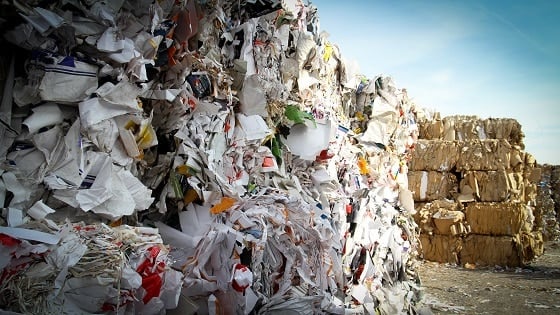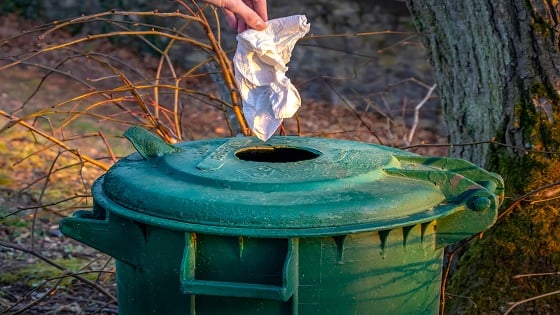
History Of Recycling: World And Australia 📜
History Of Recycling 📜: We are fortunate enough today because people are becoming more aware of the environment. As a result, we acquired a means of fighting off environmental problems. This is good and all, but one interesting topic to ponder on is this: When did this all start? What is the history of recycling in Australia – or even around the world? We will tackle this in our discussion today.
>Download Now: Free PDF Business Owners Guide To General Waste Bin Services
A bit about Waster
Before we continue our topic on the history of recycling, let me share more information about Waster.
We here at Waster provide you with innovative solutions for you and your business’s waste management and recycling needs. Additionally, we provide flexible, 30-day contracts instead of the typical lock-in contracts, which proves to be better.
Click on the blue button to learn more.
READ: Wash Containers Before Recycling 💧🍾
Recycling’s history
Recycling may seem like a modern idea – let’s say the 70s or the 80s – thought of by people wanting to involve themselves for environmental causes, but that is not the case. People from the past already grasped the concept of recycling and did this thousands of years ago. In fact, historians are pretty much sure that humans of ancient times – specifically the innovative craftsmen – had somewhat of an idea with the principles of recycling, albeit not as advanced as in the modern times, obviously. Take for example the people of ancient Greece at around 400 BC; researchers found that they have recycling history, as well. Their waste contained fewer utilised tools and other types of ornaments during their time of crisis – which suggests reusing and recycling.

Additionally, people from other countries adopted the idea presented by the ancient Greeks. In first-century China, the Minister for Agriculture in the Han dynasty suggested that the workers – slaves, even – to boil old linen rags to create paper. The method also spread to Europe in the eighth century by Arab civilisations.
10 important dates
The ten important dates in the history of recycling, provided by Paprec, consists of the following:
- 3000 BC – People melted metal objects to create new ones.
- 500 BC – Athens invents the first municipal rubbish dump and obliges its citizens to deposit their waste there.
- 105 – During the Han dynasty, the Chinese Minister for Agriculture Tsai Lun invents the idea of making paper from old linen rags.
- 1031 – Japanese people made recycled paper for the first time in the history of humanity from recycled paper.
- 1690 – Philadelphian people created the first recycle paper company, named The Rittenhouse Mill.
- 1884 – Eugène Poubelle, the prefect of the Seine, makes Parisians use a closed container — that would bear his name — to deposit their waste, and make it easier to collect.
- 1940 – People from Europe and the United States used nylon, rubber, used batteries, and various scrap metal for recycling purposes in order to boost the war effort.
- 1970 – The symbol for recycling — also known as the Möbius strip — becomes the universal logo for recyclable materials.
- 1973 – The first recycling centre for plastic materials is created in Conshohocken, in the United States.
- 2016 – The recycling industry generates revenue volume of 160 billion dollars throughout the world, and employs around 1.5 million people.
Modern recycling chronicle
Before the introduction of different kinds of machinery, creating new items was fairly slow and expensive. As a result, everyone practised recycling in their own way as to remove the need to wait for the production of the desired goods and reduce expenses. But all of that changed with the coming of the industrial age. With items now being produced at a faster rate, while also becoming much cheaper, things suddenly changed for recycling during that time. Suddenly, recycling ceased to exist in the mid to late 1700s due to the history’s Industrial Revolution. It was forgotten for quite some time.

Economic decline
“All good things must come to an end,” as the saying goes. After a period of prosperity, then comes the historical event that we call the Great Depression. Many parts of the world in the late 1920s to the late 1940s experienced huge economic loss. As a result, this made recycling quite a necessity. Goods such as nylon, rubber, and many types of metals were carefully recycled and allocated to help support World War II.
Roller coaster ride

It has become quite a roller coaster ride stemming from the start of history up to the point of the postwar years. After the end of the war, another economic boom happened which caused the slowing down of recycling once again. But due to the waste and environmental concerns brought about by this, it led to a significant event wherein the first Earth Day came to be, which will forever make recycling a mainstream idea. Check out our blog on Earth Day 2020.
Recycling history in Australia
Now that we have tackled the history of recycling in general, I want to focus more on a specific country, namely Australia. We will focus on its paper recycling history – and its recycling history in general. This all started in 1815 when the first Australian paper mill was created. History states that the paper mill used recycled rags and turn them into paper material. Additionally, Planet Ark reported that BHP first began using recycled steel back in 1915. Scrap metal businesses have been around a long time already, almost the same time when cars, bicycles, and whitegoods collection started. Then, in the 1920s, waste paper collections from households and factories started. The 1940s also saw people collecting newspapers from households by riding in a cart and horse. They used the paper collected for creating packaging material.
Recycling here has really gone a long way. To have an idea about it, check out our blogs and see for yourself!
Recycling in history: conclusion
Modern recycling, in general, is continuously improving. But our recycling history says a lot. We have really gone a long way. I personally found it very amusing to learn about the history of recycling. And I hope you did, too.
Waster: things you need to know
If you’re looking for recycling bins, check our waste recycling shop and find the best deals in terms of pricing and services.
Also, please call 1300 WASTER (1300 927 837), or email us at enquiries@waster.com.au if you have any further questions.
Leave a Reply Cancel reply

Product categories
Most Popular Posts
-
Commercial Waste Management Services: Reduce Waste Collection Costs! 🚍
-
Medical Waste Disposal: Everything You Need To Find Out In 2024! 💉
-
Rubbish Removal Sydney 2024: Better Bin Collections For Business ✅
-
Clinical Waste Disposal 2024: What To Know About Business Clinical Waste ⚕️
-
Secure Document Destruction 2024: All About Security Bins Shredding 🔒
-
Free Cardboard Recycling 2024: Can I Get Free Cardboard Collection? 📦
-
Confidential Paper Disposal Bins 2024: What You Need To Know About Shredding! 🔒
-
Recycling Bins Australia 2024: Recycling Can Boost Your Profits! ♲
-
Commercial Wheelie Bin Collection: What Businesses Need To Know In 2024 🗑️
-
Commingled Recycling 2024: Why Commingled Bin Is Key To Recycling 🍾













